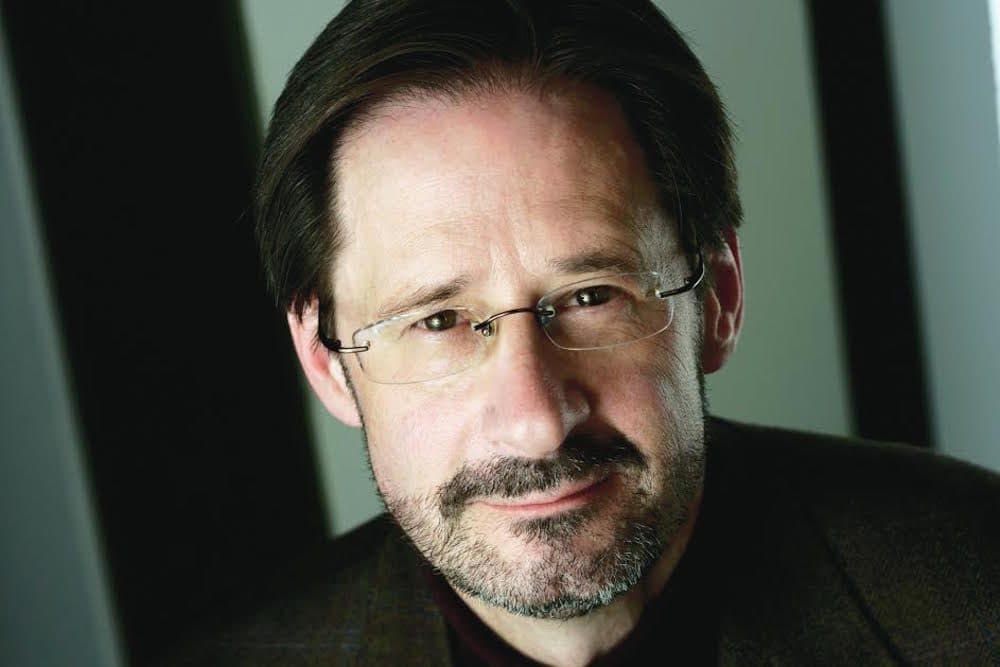Advertisement
Tanglewood Celebrates Composer Steven Stucky In Its Festival Of Contemporary Music

You sense that Steven Stucky wouldn’t mind being remembered in this way.
The late American composer, who died in February from brain cancer, was scheduled to be the guest artistic director at this year’s Festival of Contemporary Music at Tanglewood. In fact, he did curate the five-day event before he passed, and this weekend’s festival, which opens Thursday night in Ozawa Hall, pays tribute not only to him but to those contemporaries whose musical lives he touched.
When Stucky originally announced his programs in November 2015, he wrote, “running throughout these programs are connections both personal and artistic. First, Messiaen taught Boulez, then both George Benjamin and Jonathan Harvey. Second, a tight-knit group of friends — including Esa-Pekka Salonen, Magnus Lindberg, Anders Hillborg and me — have mutually influenced and supported one another for years. Meanwhile, Lutosławski was a chief mentor and father-figure to Salonen, to Lindberg, and to me, and an important presence in Joseph Phibbs’s music.”
All these composers, along with more than a dozen others, will be featured during the festival. The opening concert serves as a memorial to Stucky, and includes Lutosławski’s “Chain 1.” It was Stucky’s 1981 book, “Lutosławski and His Music,” a Deems Taylor award winner, that brought much greater understanding to the Polish composer’s work.
FCM, founded in 1964 and the site of innumerable premieres and performances of experimental music, continues the tradition of revisiting recent contemporary compositions along with new works. Mixed in with pieces like Boulez’s “Dérive I” — composed in 1984, and likely included by Stucky to mark that composer’s passing in January — are world premieres by Erin Gee (“Mouthpiece 29,” on Saturday afternoon) and Harold Meltzer (“Variations on a Summer Day,” on Sunday morning’s program). Phibbs’s first string quartet receives its U.S. premiere on Friday afternoon.
The most ambitious program of the festival comes on the final evening, when Stefan Asbury conducts the Tanglewood Music Center Orchestra, the Lorelei Ensemble, and countertenor soloist Bejun Mehta in George Benjamin’s “Dream of the Song.”
A BSO co-commission, this performance of “Dream of the Song” will be the first of three that the BSO will perform over the course of the next year. The work will not only be repeated during the BSO subscription season next February, but will be included in the orchestra’s visit to Carnegie Hall in March as well.
It will be paired on this program with Messiaen’s “Turangalîla-symphonie,” a work with deep BSO roots — and one of the most profound symphonic works of the 20th century. “Turangalîla-symphonie” was commissioned by Serge Koussevitzky, and premiered with Leonard Bernstein at the podium in 1949.
“Turangalîla-symphonie” eventually became part of a trilogy of works based on the Tristan myth; “Harawi,” the first part of the trilogy for piano and soprano (Lucy Shelton), will be performed at Monday’s prelude concert. At almost an hour long, the “Harawi” song cycle — exploring themes of love and death that are central to the Tristan myth — makes extraordinary demands on the soloist.
For general admission passes and additional information, visit the Tanglewood website.




